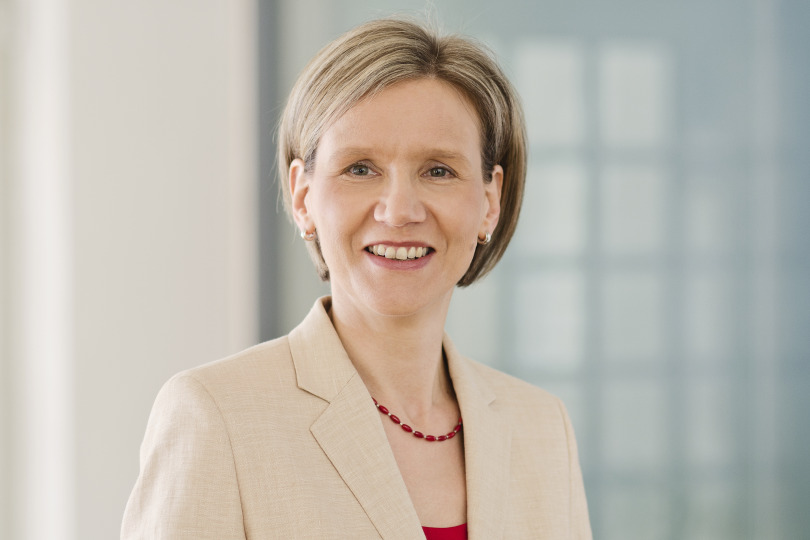
Deepening Collaboration Supports Study of Innovation and Transition Economics
Three years ago, HSE and Germany’s Halle Institute for Economic Research (IWH) signed a Memorandum of Understanding to cooperate on issues concerning innovation and transition economics. Prof. Dr. Jutta Günther of the University of Bremen, who is heavily involved in the collaborative relationship, will be presenting at the XVII April International Academic Conference on Economic and Social Development at a panel on Science, Technology and Innovation Policy. She recently agreed to speak with the HSE news service about the progress in collaboration between the two universities, her research interests, and some of her favourite places to visit in Moscow.
April International Academic Conference
On April 19-22, 2016, the National Research University Higher School of Economics with a support of the World Bank organizes the XVII April International Academic Conference on Economic and Social Development.
Asia is Learning to Consume
Asia is turning from a ‘global factory’ into a colossal consumer of goods and services, and this could lead to radical changes in the world economy, Junior Research Fellow in the Centre for Comprehensive European and International Studies (CCEIS), Anastasia Likhacheva, said in the paper ‘A New Model of Development in the Asian Region: Continent of Consumption’ presented at HSE’s XVI April International Academic Conference.
Leading Companies in Search of Young Talent
Most Russian companies on the Forbes 500 list have programmes in place for managing young talent, so that they are able to develop their own managers to take leading positions within the company in the future, according to Veronica Kabalina, professor of the HSE Faculty of Management, and Maral Muratbekova-Touron (Paris) and Marion Festing (Berlin), researchers at the ESCP Europe. The findings of their study 'Young Talent Management Programs in Russian Companies and MNCs' were presented at the HSE's XVI April Conference.
Emigration from Russia More Varied
Emigration from Russia has changed significantly over the last decade. The potential for ethnic repatriation has almost been exhausted, but other factors have become stronger in the population outflow, such as reunion with families and trips for education. Such emigration is largely determined by differences in the quality of life and policies in host countries, which welcome young, educated, qualified people with a certain level of income, said Mikhail Denisenko, Deputy Director of the HSE Institute of Demography, in his presentation at the XVI April International Academic Conference at HSE.
Food Industry Experiences Up to One Third of All Bankruptcies
The number of bankruptcies in the real economy is growing rapidly. Companies at risk include car manufacturers, agriculture, and metallurgy. Companies are being forced to leave markets due to decreasing demand and unbearable borrowing costs, said Anastasia Mogilat at the XVI HSE April International Academic Conference.
Today's Readers Want to Be Co-authors of Books
Reading is not a popular pastime for young people today. Classic and modern literature often lose out to fantasy fiction, which is often made into films and videogames and allows young readers to become viewers and participants of an alternate reality, according to Lyubov Borusiak, Associate Professor of the HSE School of Integrated Communications, who presented the findings from her study of young readers' preferences at the HSE's XVI April International Academic Conference.
Impressions from the XVI April Conference: International Participants
The HSE Look talked to several researchers from the HSE international labs about their impressions from the April Conference.
Russian Regions React to the Crisis in Different Ways
Economic inequality between the Russian regions will manifest itself clearly in the context of the current crisis. While the 2009 crisis passed almost painlessly for regional budgets, the situation today is quite different. The regions will be forced to look for anti-crisis strategies in the context of continuously decreasing oil revenues, said Natalia Zubarevich, Leading Research Fellow at the HSE Centre for Studies of Income and Living Standards, in her presentation on ‘Crises in Russia: Regional Perspective’ as part of the XVI HSE April International Academic Conference.
Joint Symposium Seeks to Build Bridges between Russian and Asian Marketing and Management
As part of the XVI April International Academic Conference, HSE hosted a joint symposium of the Global Alliance of Marketing & Management Associations (GAMMA) co-organized with Korean Scholars of Marketing Science. Themed ‘Bridging Asia and Russia in Global Marketing & Management’, the event aimed to promote academic cooperation between scholars working in the fields of marketing and management in Russia and Asia. Professor Olga Tretyak (HSE), Professor Vera Rebiazina (HSE) and Professor Jaihak Chung (Sogang University) co-chaired this joint symposium. The Center for Sustainable Culture & Service of Yonsei University and Korea Economy & Management Development Institute were partners.


Abstracts submission - August 10, 2025